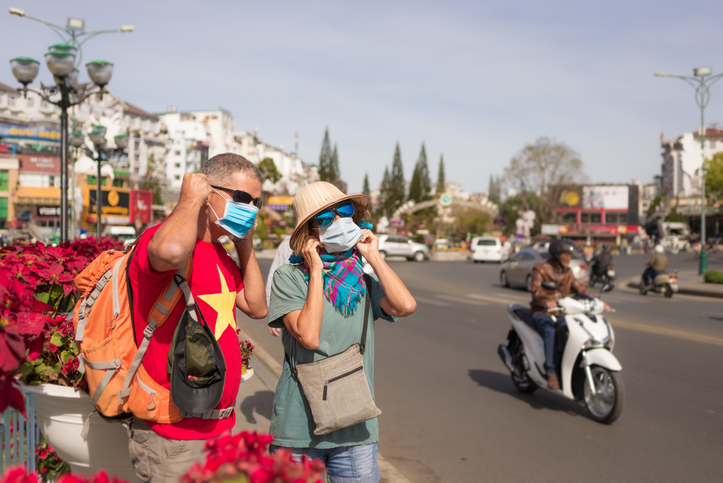
While the rollout of vaccines across the globe, including in Southeast Asia, have led to encouraging signs the coronavirus disease (COVID-19) pandemic can finally be contained, countries still face uncertainty in the medium term and would need wide-ranging measures to sustain a recovery that is inclusive and sustainable, said speakers at the second annual Southeast Asia Development Symposium (SEADS) 2021 which opened yesterday.
Some of these policy responses include investing in environmentally sustainable sectors, bolstering government revenues, and harnessing big data, Asian Development Bank (ADB) President Masatsugu Asakawa said during his opening keynote at the virtual conference. “The pandemic is presenting all of us with unprecedented challenges, and we need to forge a new path forward together, one which taps new ideas and technologies, and leverages our existing platforms for innovation and partnership.”
The measures are among policy responses ADB prescribed in a series of policy briefs launched yesterday. One of the policy briefs also called on governments to nurture vital sectors which have the potential to drive economic growth: tourism, agro-processing, garments, digital trade, and electronics.
Although the health crisis has not been as devastating for Southeast Asia compared with the United States or Europe in terms of fatalities, the region has not been immune to the pandemic’s headwinds.
In a report released in December, ADB cut its 2020 growth forecast for Southeast Asia to -4.4% from -3.8% in September. It also revised down the 2021 outlook to 5.2% from the 5.5% growth forecast in September.
ADB organized the symposium, Innovation through Collaboration: Planning for Inclusive Post-COVID-19 Recovery, to help countries chart a path forward. Other keynote speakers of the plenary session included International Vaccine Institute Director General Jerome Kim and Bye Bye Plastic Bags and Youthtopia Voices founder Melati Wijsen.
Philippine recovery path
Philippine Finance Secretary and ADB Governor Carlos Dominguez, also a keynote speaker, concurred that the Philippines needed to embrace a more sustainable path toward recovery.
He underscored the need to adopt climate-resilient and adaptation strategies, noting that unlike the virus, there is no vaccine that can solve the climate crisis. This is why the Philippines continues to push for a legislative measure to ban single-use plastics to fight climate change, he said. "We need to act now with the same sense of urgency that we have for the ongoing pandemic.”
Dominguez also stressed the need to harness digital solutions to improve government services. He cited government’s use of digital channels to quickly disburse cash subsidies to those in need in the wake of the pandemic.
Digital transformation is also key to improving government's tax enforcement and administration, he said, noting the shift to electronic tax payments had helped revenue agencies overshoot their adjusted collection targets in 2020.
The Philippines is also deploying digital solutions to improve financial inclusion, he said. He cited government’s launch of a scheme under the Social Security System to help Filipinos plan for their retirement by allowing them to invest in investment products via contributions that may be done through mobile phones and other digital devices. He also cited the launch of a scheme enabling Filipinos to buy and sell retail treasury bonds through an app.
Digital for a good cause
In her keynote, Google.org President Jacquelline Fuller highlighted the role of technology in countries’ recovery, particularly in helping those who lost their jobs during the pandemic.
One way to do this is to support small- and medium-sized enterprises (SMEs) hit hard by the pandemic, said Fuller, who is also the vice-president of Google. She said Google helps SMEs through initiatives that provide SME owners with the means to take their business online. This is vital considering SMEs are the backbone of Southeast Asian economies.
Google.org, the software giant’s philanthropic arm, has a program with ASEAN and the Asia Foundation to equip 200,000 people in rural areas around the region, including entrepreneurs, underemployed youth, and women, with digital skills to help them cope with the pandemic.
Fuller said Google also helps SMEs get financial access through a partnership with online lending platform Kiva to provide financial solutions to small business owners.
Google.org also recently announced a hackathon offering $25 million in grants to nonprofits and social enterprises around the world “who are creating pathways to prosperity for women and girls,” Fuller added.
Need for inclusivity
United Nations Under-Secretary General Armida Salsiah Alisjahbana recognized the need for inclusivity to sustain a post-COVID-19 recovery during her SEADS keynote, noting the rise in social vulnerabilities among countries. She cited findings from a UN report that Asia-Pacific countries have fallen short of the 2020 milestones for Sustainable Development Goals as governments struggle with the pandemic.
One of the challenges facing countries is providing internet access to all, said Alisjahbana, who is also the executive secretary of the United Nations Economic and Social Commission for Asia and the Pacific (ESCAP). Those without internet cannot engage in the digital economy. “Therefore inclusive objectives must be at the heart of digital policies if the promise of leave no one behind is to be met.”
She said ESCAP has programs in the region to bridge the digital divide and address inclusivity for women. ESCAP also collaborates with Google and Amazon to support women entrepreneurs with economic recovery.
Fostering social entrepreneurship andi inclusive business is also vital to recovery efforts, she said.
“The lessons learned from the pandemic is the need to build back better with resilience, inclusiveness, and sustainability. Technology, innovation and collaboration, three themes that are particularly relevant to this symposium, provide us all with opportunities to achieve these objectives,” she said.
SEADS 2021 brings together more than 3,600 high-level government officials, private sector representatives, and other stakeholders from more than 100 countries.

